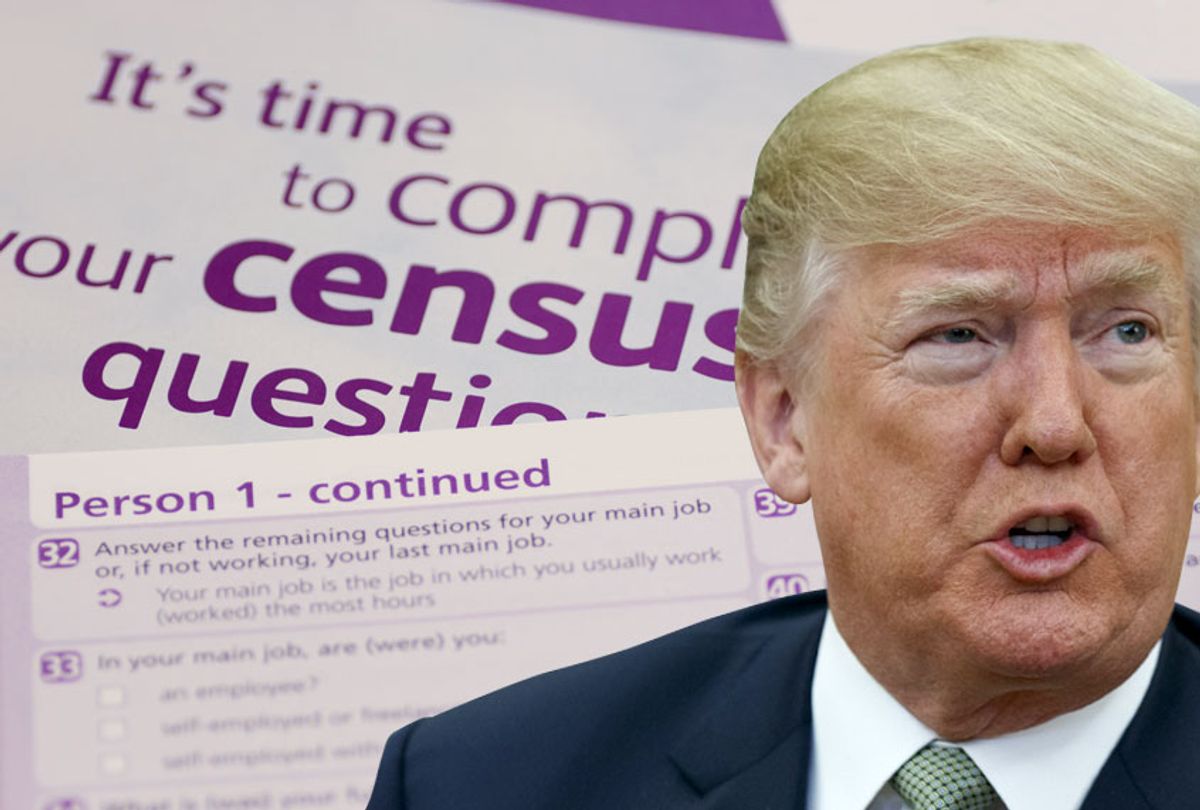A new report reveals that preparations for the upcoming 2020 Census have fallen behind following the Trump administration’s recent defeat in a Supreme Court case regarding whether a citizenship question to recipients.
A website that monitors the review progress of the White House's Office of Management and Budget shows the 2020 Census materials do not appear to have been officially approved. This is despite the fact that the Trump administration had established Monday as its deadline to start printing the paper forms, according to NPR.
“The delay in printing 1.5 billion paper census mailings could throw a wrench into a tightly wound timetable of final preparations for the 2020 Census,” NPR’s Hansi Lo Wang wrote. “The count is scheduled to begin officially in January in rural Alaska before rolling out to the rest of the country by April.”
Meanwhile, Justice Department attorneys informed a federal judge in Maryland on Monday that the Trump administration had not yet decided whether it wishes to pursue adding the citizenship question in court. U.S. District Judge George Hazel agreed to hold a hearing Tuesday on the matter, according to NPR.
In a pair of tweets posted last week, President Donald Trump said it "seems totally ridiculous that our government, and indeed Country, cannot ask a basic question of Citizenship in a very expensive, detailed and important Census, in this case for 2020. I have asked the lawyers if they can delay the Census, no matter how long, until the United States Supreme Court is given additional information from which it can make a final and decisive decision on this very critical matter. Can anyone really believe that as a great Country, we are not able the ask whether or not someone is a Citizen. Only in America!"
In a Supreme Court ruling last week, Chief Justice John Roberts implied that the Trump administration had been dishonest in its attempt to add the citizenship question to the Census when he wrote that their reason "seems to have been contrived." Roberts also said it seemed clear that Commerce Secretary Wilbur Ross "was determined to reinstate a citizenship question from the time he entered office" and later concocted the excuse that it was needed to enforce the Voting Rights Act, an argument which the high court did not find compelling.
Ultimately, the chief justice concluded that the Trump administration's approach left the court unconvinced it had a sound reason to include a citizenship question.
"We cannot ignore the disconnect between the decision made and the explanation given . . . If judicial review is to be more than an empty ritual, it must demand something better than the explanation offered,” Roberts wrote. "The sole stated reason — seems to have been contrived. We are presented, in other words, with an explanation for agency action that is incongruent with what the record reveals about the agency's priorities and decision making process."
Maryland U.S. District Judge George Hazel also wrote last that files found on the late Republican operative Thomas Hofeller’s hard drives "suggests that Dr. Hofeller was motivated to recommend the addition of a citizenship question to the 2020 Census to advantage Republicans by diminishing Hispanics’ political power. Taken together with existing evidence, it appears that Dr. Hofeller was involved in the creation of the pretextual [Voting Rights Act] rationale and worked with [Mark] Neuman, Secretary Ross’s 'trusted advisor,' to drive the addition of a citizenship question."



Shares